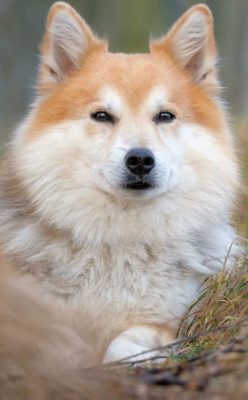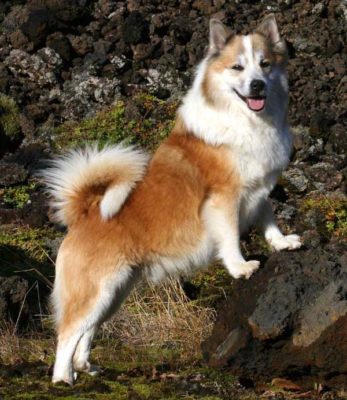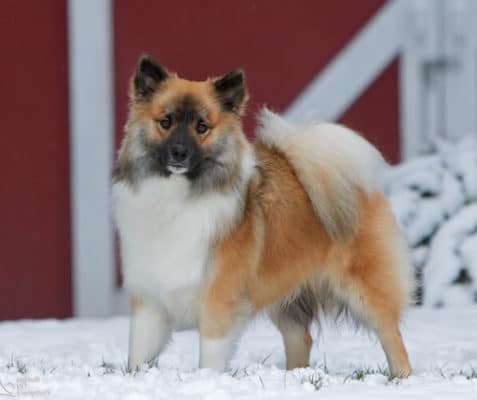Icelandic Sheepdog
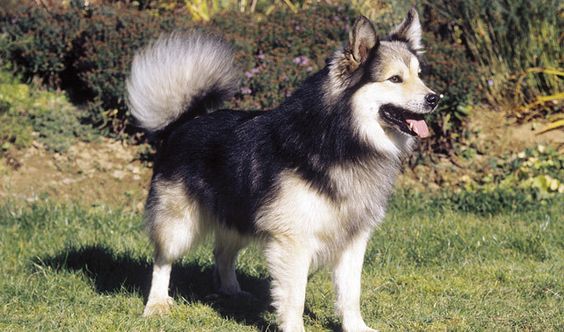
The Icelandic Sheepdog is a breed that adores people; thus, constant contact with humans is important to them. Open, curious, and as friendly as possible, the energy is overpowering. In the North, it was valued for its endurance and intelligence. She is not inclined to aggression but controls her territory and can chase away ill-wishers only by singing.
Table of Contents
Breed Information
| Another Name | Icelandic Spitz, Iceland Dog, Íslenskur fjárhundur, Islandsk Fårehund, Friaar Dog, Canis Islandicus |
| Origin | Iceland |
| Height | Males 38-46 cm Females 35-42 cm |
| Weight | 9-14 kg |
| Fur | Medium |
| Color | Red, black and white, creamy white, gray and white, reddish-white |
| Lifespan | 12-14 years |
| FCI Classification | Spitz and primitive types |
| Group | Hunting dogs |
| Price | From $800 |
Breed Photos
Origin History
The Icelandic dog is a breed that originated in a northern country with a harsh climate thousands of years ago with the Vikings. Isolation from the world helped keep the breed intact for many years. The Icelandic Sheepdog is revered and loved in its homeland and has been declared part of Iceland’s cultural heritage and national symbol. They are small shepherd dogs that were used to herd sheep all the time.
Appearance
The Icelandic Sheepdog is a small, muscular build. The muzzle is elongated; the eyes are little, the ears are erect, the tail is a trademark of all spitz breeds. The body is in an elongated shape, a maximum height of 46 cm and barely 15 kg. The coat is thick, warm and forms a white collar on the chest. Most often, there are representatives of the breed with a red color. Gray, brown, and tricolor (black with white and red) are much less common.
Character
The Icelandic Sheepdog is a breed that adores people; thus, constant contact with humans is important to them. Open, curious, and as friendly as possible, the energy is overpowering. In the North, it was valued for its endurance and intelligence. She is not inclined to aggression but controls her territory and can chase away ill-wishers only by singing. Favorable to other dogs and animals, with the role of nurse for small children cope on hurrah. Has a particular dislike for birds; take care of parrots! Its innate friendliness prevents the Icelandic Dog from becoming a ruthless guardian.
Care
Icelandic Dogs are not kept in an apartment; despite their small size, they need space to satisfy their herding instincts. The dog likes to “talk”, you and your neighbors are not likely to like it.
They are content with tiny portions for normal functioning, but fish can be eaten in huge quantities. Physical exercise on a walk is mandatory. The Icelandic Sheepdog should be brushed weekly, claws should be trimmed, and teeth should be brushed. After walks, check the ears and coat for bedbugs and mites. They can infect the pet with a variety of infections. Categorically do not tolerate loneliness and keeping on a chain.
Training
Icelandic Sheepdogs are not difficult to train, as they grasp information on the fly and enjoy working with their beloved owner. The important thing is to get the pet interested, find an approach to him, and offer a worthy reward.
The Icelandic Dog is well-trained due to its high level of both general and social intelligence. Like other dogs, early socialization and the right approach to training are essential for them. Because these dogs are slow to mature, it’s best that training takes place in the form of play. And, of course, they should not be mistreated because these dogs are very sensitive to any injustice. A sure method of training them is to give them lots of treats and praise!
Common Diseases
The Icelandic Sheepdog is the possessor of good health and good heredity. Rarely, hip and elbow dysplasia and patella dislocation can be observed. To protect the pet from common infections, vaccinations are necessary. Fleas often live in thick fur; treat your pet for parasites at the start of the warm season. Can live a long life, from 12 to 14 years.
Nutrition
There is no food addiction in Icelandic Sheepdogs, and they are not prone to gluttony. Buying premium natural food for your pet won’t break the bank. If you prefer to feed by-products, remember that the basis of the diet should be lean meat. Also, Icelandic Dogs love fish – but it should be cooked and without big bones. The diet should include cereals in the form of porridges in vegetable broth and vegetables themselves. Sour-milk products such as low-fat cottage cheese and kefir are very useful. Dogs should not be given sweets, salty, spicy, smoked meats, pork, and chicken bones.
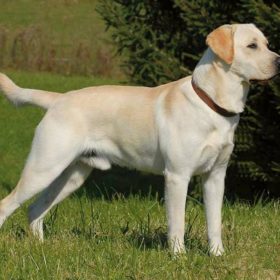 Labrador Retriever
Labrador Retriever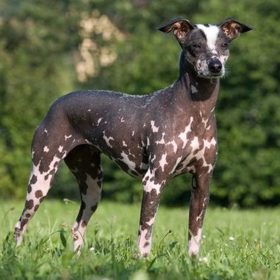 Peruvian Hairless Dog
Peruvian Hairless Dog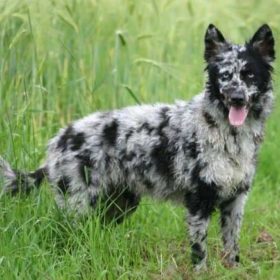 Mudi
Mudi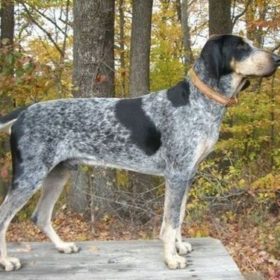 Petit Bleu de Gascogne
Petit Bleu de Gascogne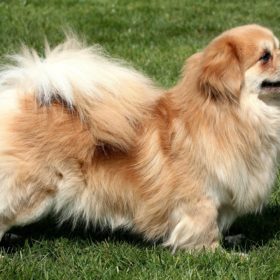 Tibetan Spaniel
Tibetan Spaniel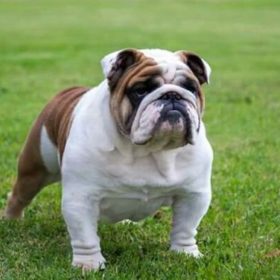 Bulldog
Bulldog